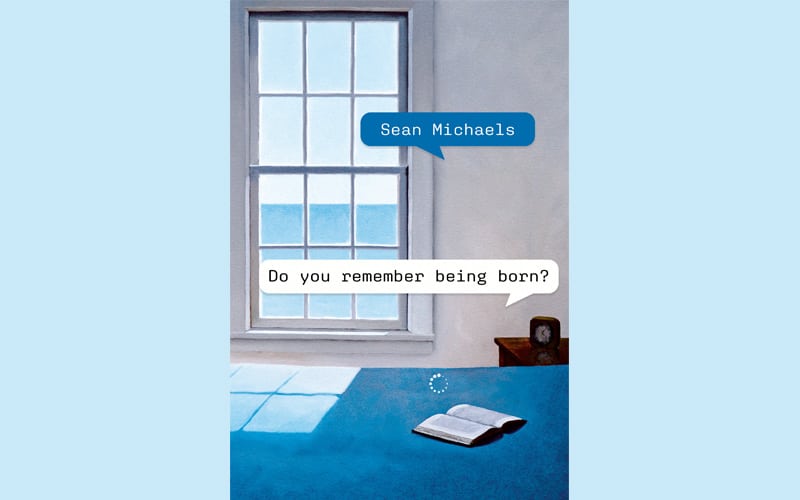There was always going to be a novel about AI’s potential for replacing human authors. Not that I’d thought of it before, but when I came across Do You Remember Being Born? and read that it was a novel about a poet being asked to collaborate on a poem with a major tech company’s AI poetry-bot, I realised that something in me had been dreading this inevitable moment in my reader’s life. Turns out, I was wrong.
Yes, Do You Remember Being Born? is topical (and is there a less aesthetic adjective than that?), but far from using its topicality as a cheap substitute for literary quality, Sean Michaels effects the very impressive little miracle of relegating the AI buzziness of the novel to an ideal premise for his exploration of artistic identity and parenthood, all crafted with real tenderness and style.
Marian Ffarmer, at 75, is as successful a poet as a poet can be, which is to say that she’s won lots of prizes, receives either admiration or enmity from her fellow poets, gets occasionally recognised by a fan on the street (actually, here the novel enters the realm of poets’ fantasy), and doesn’t have any money. The not having any money has been a more or less conscious choice, since this is a woman whose pursuit of the poetic life has seen her walk away from a marriage and back into the small apartment and the bed she shared with her mother till said mother’s death. But at the start of the novel, her son’s desire to buy a house and his assumption that Marian would not be able to help leads to the rather excellent opening line, ‘The letter came just as I was despairing.’ The letter is from ‘The Company’ (read, Google, Meta, whatever), offering her stacks of cash to co-write a poem – The Poem – with their AI poetry-bot, Charlotte.
Of course, Marian accepts, and the week she spends in California, shut in a room with Charlotte, working to produce the poem that will allow her to be ‘a proper mother’ forms the entirety of Michaels’ novel. The interactions between poet and machine are often thought-provoking, sometimes verging on moving, but what really lifts the book are the moments of humour and the segments of ‘hindsight’ that reach back into Marian’s life and develop her into a character of real depth. A book that can balance gentle satire of Silicone Valley types ‘eating a spinach salad leaf by leaf, with chopsticks’, while sensitively exposing the selfishness of vocation – while also incorporating sections of AI generated text – is being more than interesting; it’s being good. And that’s what really counts.







Click here to change your cookie preferences